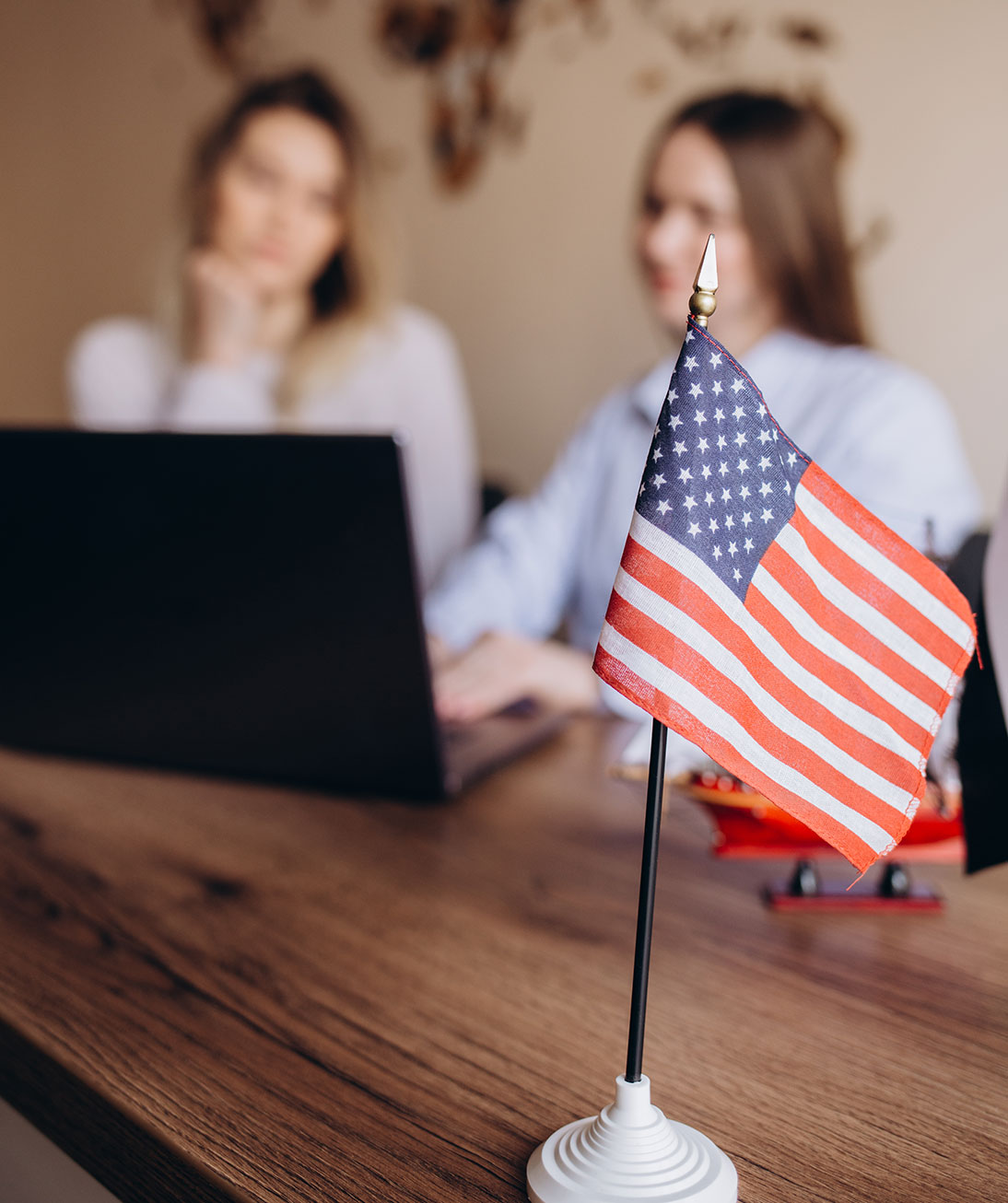STUDY IN USA
Why Study in the USA?
The United States is an alluring destination for international students because of its strong commitment to maintaining high academic standards. Accrediting agencies play a critical role in ensuring the quality and standards of US universities and colleges. Through regular reviews and assessments, these agencies ensure that institutions adhere to rigorous criteria, providing students with a top-tier learning experience.
Studying in the USA offers a plethora of advantages, and a key factor is the emphasis on teaching excellence. The US higher education system values quality instruction, innovative teaching methods, and comprehensive support systems. This dedication to exceptional education and student outcomes assures international students that they will receive a first-rate learning experience during their studies in the United States.
While studying in the USA, international students can also engage in various extracurricular activities and clubs, allowing them to build a well-rounded skill set and expand their network. This combination of academic excellence, ample support, and diverse opportunities makes the USA a rewarding destination for international students seeking a top-notch education and a fulfilling learning experience.

General Parameters
Type of Qualification
Undergraduate Degrees
An undergraduate degree typically obtained after completing a four-year program of study at a college or university. It is the first level of post-secondary education and provides a broad foundation in a chosen field of study.
Master's Degrees
A graduate-level degree that follows a bachelor's degree. It typically requires 1-2 years of additional study and offers specialized knowledge and expertise in a specific field or discipline.
Doctoral Degrees (PhD)
It involves several years of advanced study & original research beyond the master's level. The duration of doctoral programs can vary depending on the field of study and research requirements, but it often takes around 3-6 years or more to complete.
Part Time and Post Study Work Permit
Part Time Work
1. The federal minimum wage in the United States is $7.25 per hour. However, part-time minimum wage in the USA can vary depending on the state, from $7.25 to $17.00 per hour.
2. If you believe that you are not being paid the minimum wage, you can file a complaint with the U.S. Department of Labor. You can also file a complaint with your state or city labor department.
Post-Study Work Permit
In the United States, international students who are on an F-1 student visa and have completed a degree program in specific fields may be eligible for Optional Practical Training (OPT). The two main types of OPT are:
1. Post-Completion OPT: This type of OPT is available for students who have completed their degree program. They can apply for post-completion OPT to gain practical work experience related to their field of study for up to 12 months.
2. STEM OPT Extension: Students who have completed a degree in Science, Technology, Engineering, or Mathematics (STEM) fields may be eligible for an additional 24-month extension of their OPT period.
Study Visa Requirements by USDS
Indian students applying for a student visa (F-1 visa) to study in the USA have to meet certain requirements. These requirements may vary slightly based on individual circumstances and the specific U.S. educational institution. Here are the key requirements:
- Admission to a School: The first and foremost requirement is to obtain acceptance into a U.S. educational institution certified by the Student and Exchange Visitor Program (SEVP).
- Form 1-20: Once accepted, the institution will issue a Form 1-20, which is a Certificate of Eligibility for Non-immigrant Student Status.
- Financial Documentation: Applicants need to provide proof of sufficient funds to cover tuition fees, living expenses, and other educational costs during their stay in the USA. The exact amount will be on the finance certificate provided by the institution.
- SEVIS Fee: Before the visa interview, students are required to pay the SEVIS 1-901 fee, which is currently $350 for F-1 visa applicants;
- Form DS-160: All applicants must complete the online non-immigrant visa application form DS-160.
- Visa Interview: After completing the DS-160 form and paying the SEVIS fee, applicants need to schedule a visa interview at the US, embassy or consulate in India.
- Ties to Home Country: Applicants must demonstrate strong ties to their home country to show that they have compelling reasons to return after completing their studies in the USA.
- English Proficiency: While there is no specific English language test required for the F-1 visa, students must demonstrate enough proficiency in English to succeed academically.
Cost of Study in USA
The cost of studying at a private university is typically higher than the cost of studying at a public university.
Program
The cost of studying in a professional program, such as a law or medical program, is typically higher than the cost of studying in a liberal arts program.*
Costs
The average cost per year for studying in the USA is approximately $25,000 - $50,000 for undergraduate programs, $30,000 - $70,000 for graduate programs, and $40,000 - $100,000 for professional programs.*
